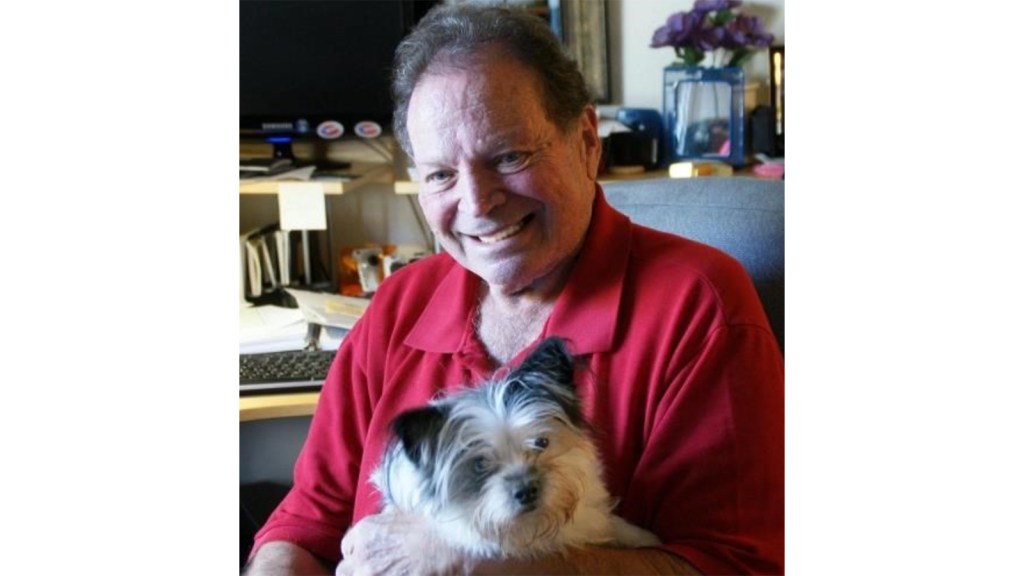Remembering Harvey Laidman: A Legacy of Storytelling in Television
Harvey Laidman, a name synonymous with compelling storytelling in television, has left us at the age of 82. Renowned for his directorial prowess on iconic series such as The Waltons and Matlock, Laidman’s career spanned decades, during which he shaped the landscape of American television. His unique ability to weave intricate narratives with emotional depth has inspired filmmakers, actors, and audiences alike. As we reflect on his remarkable journey, it’s essential to recognize the profound impact he had on the storytelling tradition in television.
The Early Years: A Foundation of Creativity
Born in the vibrant city of New York in 1941, Laidman’s early exposure to the arts sparked a passion for storytelling that would define his career. He pursued a degree in theater at Columbia University, where he honed his skills in directing and scriptwriting. After college, Laidman’s career began in the theater, where he developed a keen understanding of character-driven narratives.
His transition to television came during a period marked by significant change in the industry. The late 1960s and early 1970s saw the emergence of more nuanced and relatable characters, and Laidman was at the forefront of this transformation. He understood the importance of portraying everyday life with authenticity, a quality that resonated deeply with audiences.
Defining Moments: Directing Iconic Series
Laidman’s directorial debut on The Waltons in the early 1970s marked a turning point in his career. This family drama, set in the Great Depression, captured the essence of American resilience and unity. Laidman’s ability to evoke genuine emotions through his direction was evident in numerous episodes, many of which have become classics. His work helped establish the series as a beloved staple of American television, winning multiple Emmy Awards and a dedicated fanbase.
Another significant contribution was his role in directing episodes of Matlock, a legal drama starring Andy Griffith. Laidman’s knack for pacing and suspense ensured that each episode kept viewers on the edge of their seats. The clever writing combined with his directorial expertise made Matlock a standout series throughout the late 1980s and early 1990s.
Influence on Future Generations
Laidman’s influence on television storytelling cannot be overstated. His ability to create relatable characters and engaging plots has inspired countless directors and writers. Many contemporary showrunners cite his work as a benchmark for quality storytelling. The emotional depth found in today’s popular series—ranging from family dramas to legal thrillers—can often be traced back to the groundwork laid by pioneers like Laidman.
- Character Development: Laidman’s emphasis on character arcs encouraged writers to explore complex human emotions, leading to richer narratives.
- Authenticity: His focus on relatable stories resonated with audiences, fostering a deeper connection between viewers and characters.
- Innovation: By blending humor and drama, Laidman paved the way for genre-bending television that continues to thrive today.
A Lasting Legacy in Television Storytelling
Harvey Laidman’s legacy is not merely about the shows he directed; it’s about the storytelling ethos he championed. His work has taught us that television can be a powerful medium for exploring the human condition. The emotional resonance of his stories continues to inspire new generations of filmmakers and actors, encouraging them to craft narratives that matter.
Beyond his directorial accomplishments, Laidman was also a mentor to many in the industry. He believed in nurturing young talent and often shared his insights on storytelling, emphasizing the importance of authenticity and emotional depth. His impact was felt not only through his work but also through the relationships he built within the industry.
Remembering Harvey Laidman: A Personal Touch
As we remember Harvey Laidman, it’s important to acknowledge the personal connections he fostered with his colleagues. Many actors and crew members who worked with him recall his warmth, humor, and dedication to his craft. His sets were known for their collaborative atmosphere, where creativity thrived, and every voice was heard. This inclusive approach not only enhanced the quality of the shows but also made the experience memorable for everyone involved.
In interviews, Laidman often reflected on the joy of storytelling. He understood that television has the power to evoke emotions, provoke thought, and bring people together. His commitment to this art form was evident in every project he undertook, and his passion inspired those who had the privilege of working with him.
A Reflection on Television’s Evolution
Laidman’s passing comes at a time when television is undergoing a significant transformation. The rise of streaming platforms and the shift toward diverse narratives reflect a changing landscape that he helped to shape. His contributions to the industry serve as a reminder of the importance of quality storytelling, regardless of the medium. As new voices emerge, the foundational principles that Laidman championed—authenticity, character-driven narratives, and emotional depth—remain as relevant as ever.
Conclusion: Celebrating a Visionary
Harvey Laidman, the visionary director behind some of television’s most cherished stories, leaves behind a legacy that will not be forgotten. His work on The Waltons and Matlock exemplified the power of storytelling to connect with audiences on a profound level. As we celebrate his life and contributions, we also look forward to the future of television, inspired by the principles he embodied. In remembering Harvey Laidman, we honor a true master of storytelling whose influence will continue to resonate in the world of television for years to come.
See more CNET Live

